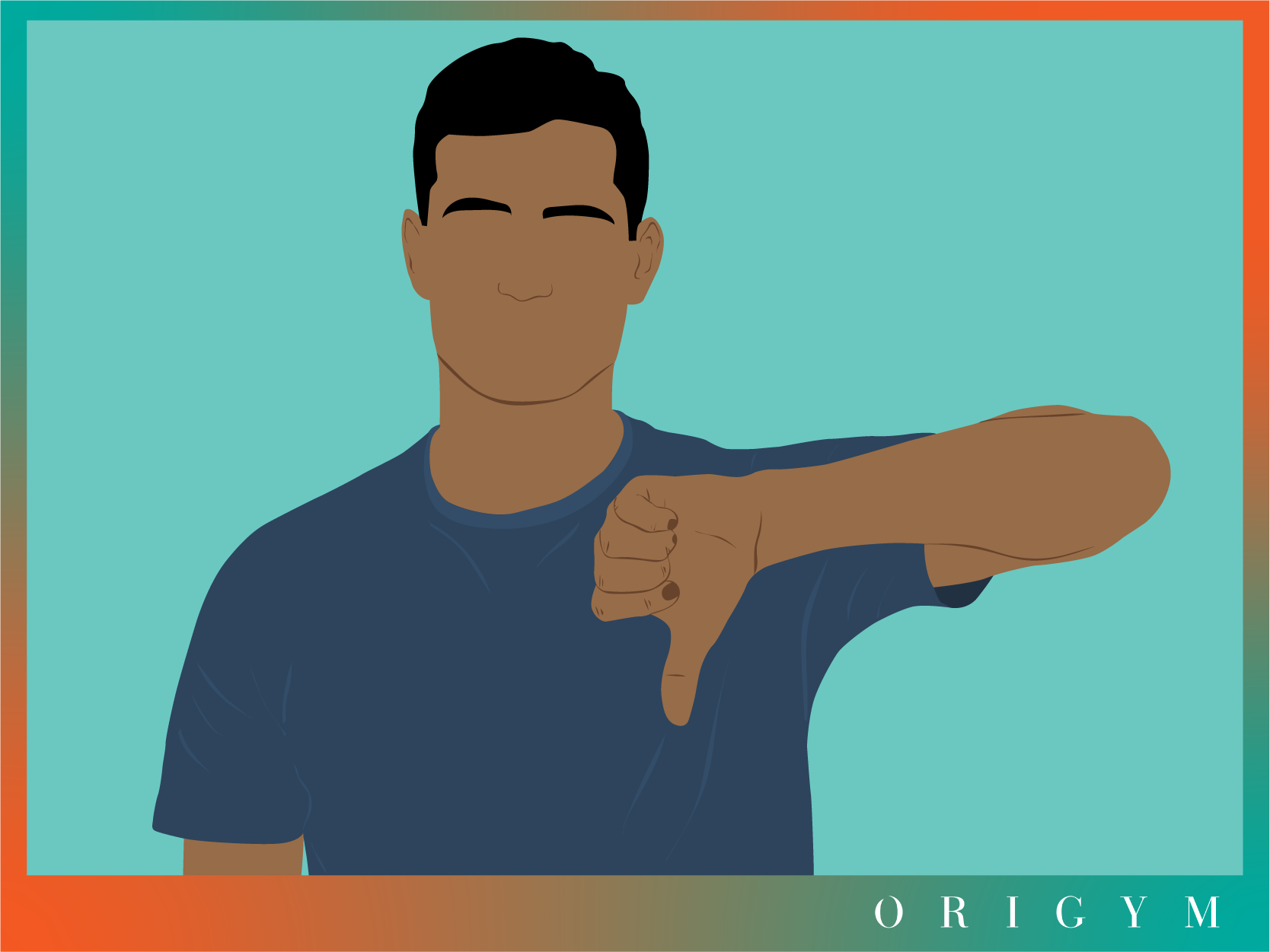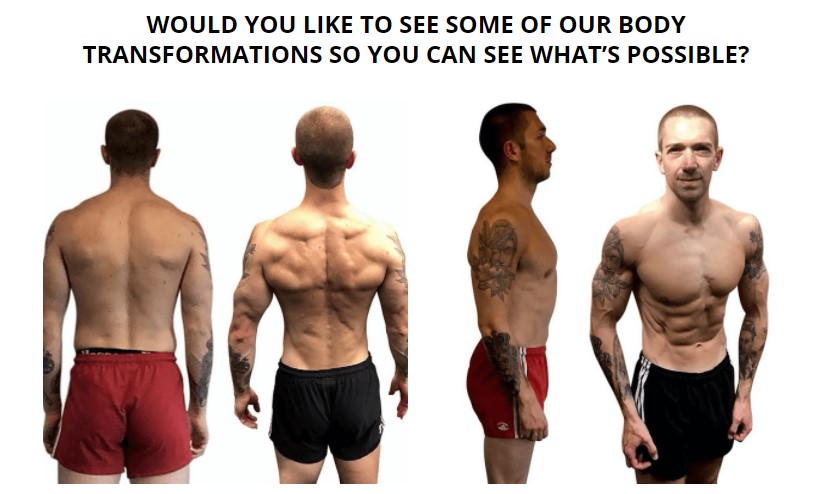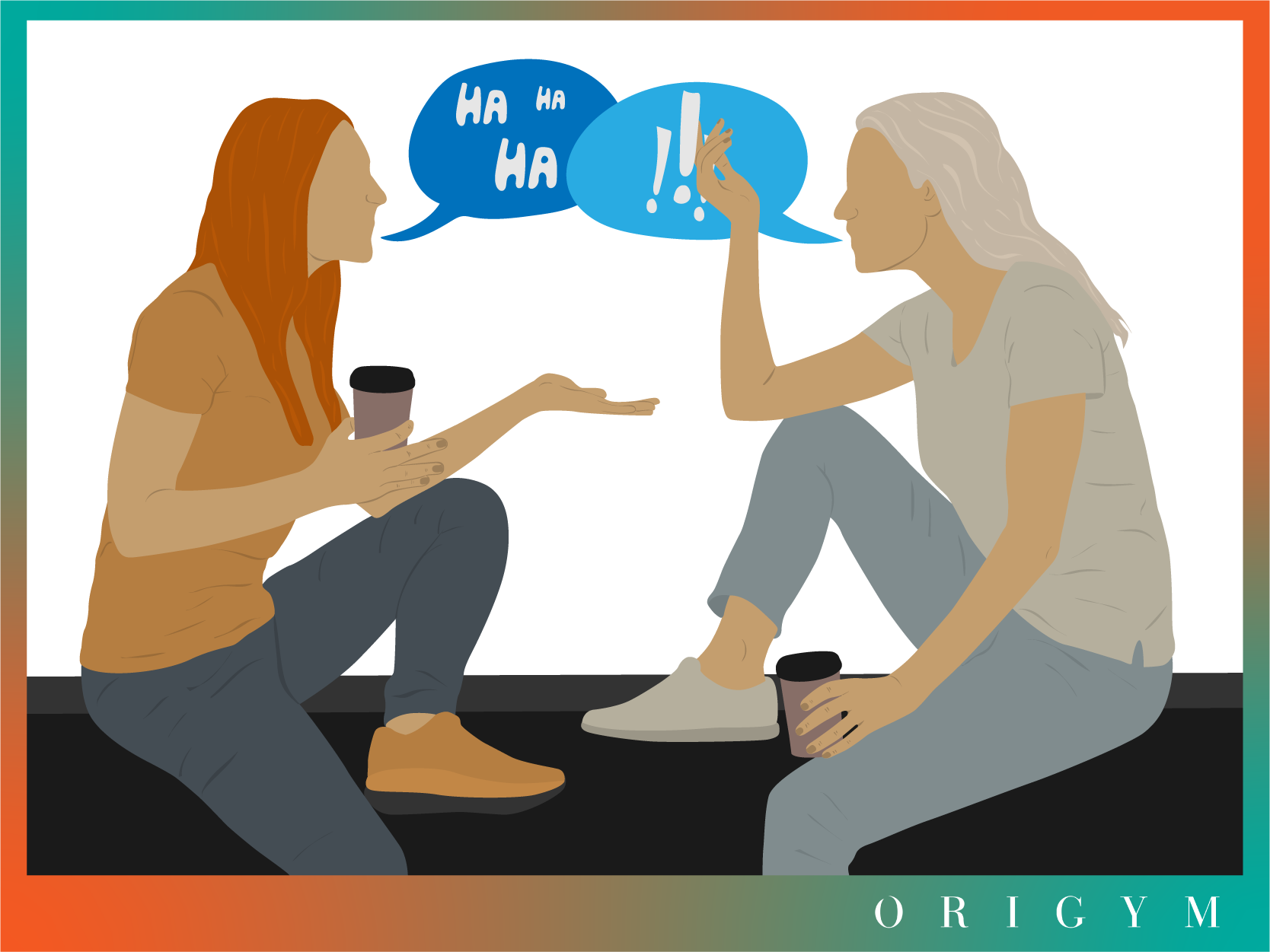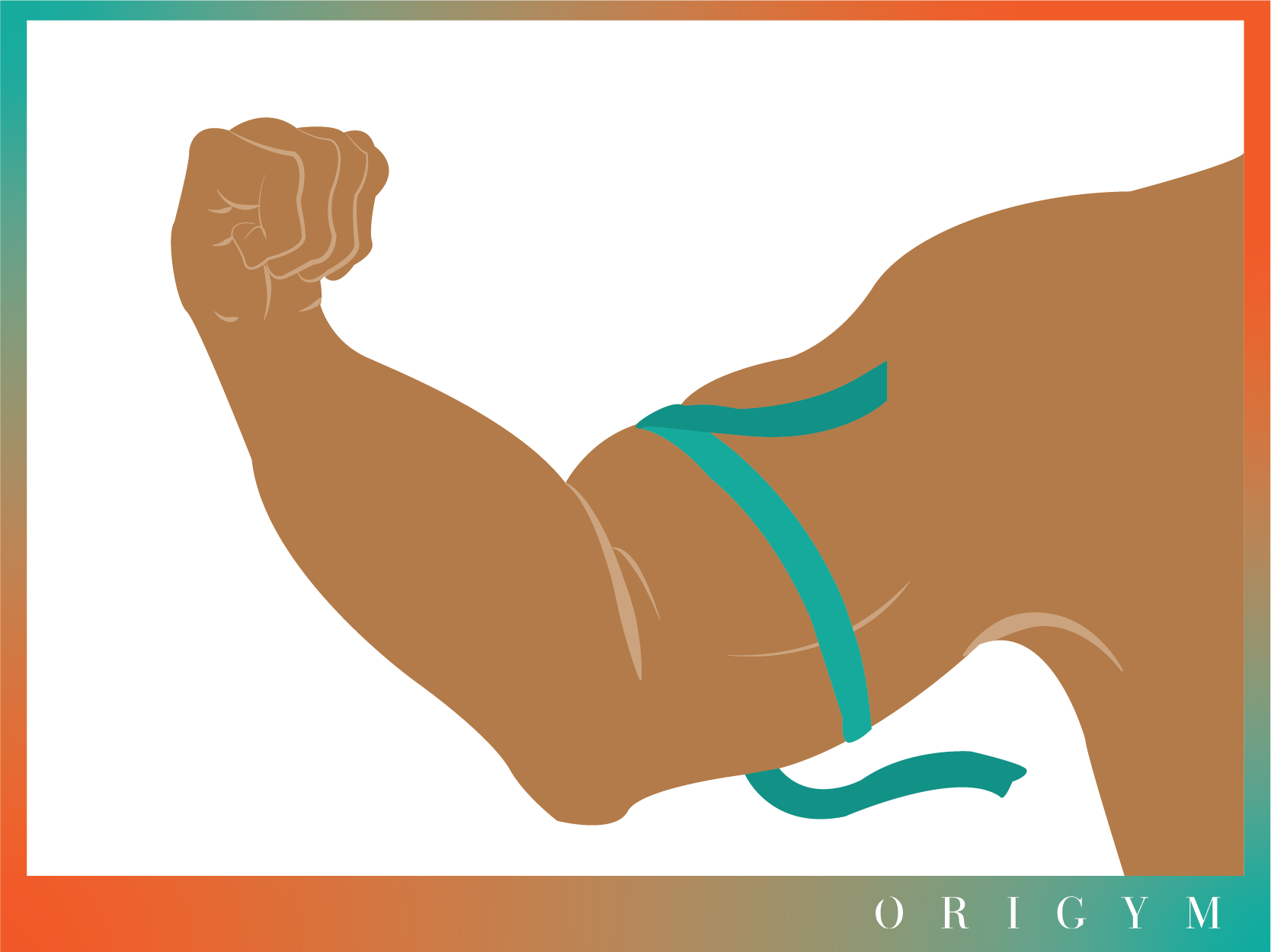If you’re investing a lot of time and money into your fitness journey, it’s important to recognise the signs of a bad personal trainer. By the end of this guide, you’ll be able to spot the red flags, and know exactly what seperates a bad trainers from good ones.
Before we begin, do you have what it takes to become a great personal trainer? If you possess the opposite qualities to what we’re about to mention in our list below, our Level 4 Personal Training Course may be just the thing for you!
Otherwise, download our comprehensive digital prospectus to see our range of available courses.
21 Signs of a Bad Personal Trainer
As with any industry, not everyone works in the same way, and the health and fitness industry is no different! While most personal trainers want to give their clients the best possible experience, there are some individuals who can be considered far from perfect.
Let’s look at how you can spot bad trainers, and what you can do to avoid training with one.
#1 – Uncertified
Arguably, the first and most important thing to consider when looking for a personal trainer is to see what qualifications they have! Even if you really like a particular PT, you should be wary of one who can’t show you any certificates or qualifications.
While being unqualified isn’t necessarily a sign of a bad personal trainer, you should certainly question how trustworthy they are. Ideally, a personal trainer should be qualified both as a Level 3 Gym Instructor and Level 4 Personal Trainer.
These qualifications can either be gained separately or combined and acquired through a Personal Trainer Diploma, such as the one offered by OriGym. Whether a PT is qualified through two separate courses or just from the diploma, they will still have the same qualifications.
With the Internet just a click away, almost anyone can become a qualified personal trainer. However, the difference between a good personal trainer vs a bad one is whether they have gained their qualifications from trusted providers.
You’ll want a personal trainer with qualifications accredited by organisations such as the Chartered Institute for the Management of Sport & Physical Activity (CIMSPA). CIMSPA is the professional development body for Ireland and the UK’s sport and physical activity sector.
This accreditation gives the public and employers reassurance that a PT has met and surpassed a set industry standard.
The personal trainer qualification levels should also be regulated by Ofqual, the government body responsible for setting the frameworks for vocational course levels and ensuring all government bodies adhere to those frameworks.
Personal trainers who have qualifications with stamps of approval from CIMSPA and Ofqual give consumers the confidence that the training being offered to them is trustworthy, and of an exceptionally high standard.
Signs of an unreliable personal trainer is one who hasn’t done enough research to ensure the qualifications they’re obtaining are ones that are approved and recognised by trusted providers.
#2 – Uses Body Shaming To Motivate Clients
There are many different ways to get someone to exercise – you could provide them with fitness motivation tips, offer them rewards, or spur them on with words of encouragement.
However, shaming them into it certainly isn’t the way to do it. A sign of a bad personal trainer is one who doesn’t factor in long term health, and feels they have to belittle clients to make them exercise.
Body shaming can lead to serious psychological issues as weight is a sensitive issue for many people, and it certainly isn’t something you should be made to feel worse about.
A good personal trainer will motivate clients with positivity and push them towards their goals in a way that makes them feel inspired, not worse about themselves.
While weight loss and training both require a changed mindset, it shouldn’t be one that becomes detrimental to a person’s mental health.
Many people who aren’t used to frequenting gyms often feel intimidated. You want to visit a PT who makes you feel comfortable and relaxed, not one who embarrasses or insults you to get results.
#3 – Only Promotes One Training Style
There are some personal trainers out there who believe their method or preferred style of training is the right one. However, everyone’s goals are different, so what works for one individual may not work for another.
There are many different training styles such as weightlifting, cardio, yoga, and HIIT to name a few. With so much variety, it’s important for PTs to recognise that one training style doesn’t suit everyone.
A bad fitness instructor will expect everyone to train in the same way, which just isn’t possible. Certain areas of the body have to be trained differently to develop individual physical abilities such as:
- Endurance
- Flexibility
- Strength
- Coordination
- Balance
- Stamina
It should be mentioned that a bad personal trainer isn’t necessarily one who prefers you leaning over to one specific kind of training. However, they are a bad one if they constantly have you focusing on only one type of training and disregard all other workouts or styles.
You should be looking for an open minded personal trainer who is willing to try different ways to help you meet your goals. They should have plenty of knowledge about what kind of workout is effective for what physical ability you want to develop.
#4 – Focuses Only on Weight Loss
We should begin this point by stating that a fitness professional who focuses mainly on weight loss instead of building muscle isn’t a bad personal trainer. However, they certainly aren’t helping you in the most effective way.
Bad trainers will only focus on core exercises, cardio, or light weight training, essentially setting a limit to how much weight their clients can burn. This means that, to see results, these clients will have to significantly reduce their calorie intake.
Increasing muscle mass helps speed up your metabolism, including the amount of calories burned at rest. According to this review, we burn anywhere between 60-75% of calories during rest, meaning a rise in fat loss if you have a fast metabolism.
There are also plenty of metabolism boosting foods we can eat to speed it up too.
It’s important for anyone to add weight training to their exercise program to ensure they are getting the most out of their training. If your trainer refuses to alter their workouts or doesn’t know something as basic as different types of exercises benefiting different areas of the body, it’s probably time to look for a new one.
#5 – Doesn’t Educate Clients
A trainer should always look to help their clients in the long term, both before, during and after training sessions. While health and fitness is an industry like any other, the difference between a good personal trainer vs a bad one is they will have a genuine desire to help their clients.
If you’re asking what makes a bad personal trainer, it’s one who only supplies clients with a minimal amount of information to make them return but not enough to allow them to make long term changes. Personal trainers shouldn’t expect someone to just blindly follow everything they say without explaining why they should be doing certain things.
An experienced personal trainer informs their clients about why a particular exercise should be done or the reason why it is performed in a particular way. It’s important for personal trainers and clients to build a good relationship.
Taking the time out to educate clients shows that a PT cares about an individual’s fitness journey and isn’t just looking at how much money they can get out of them.
It’s unlikely clients will stop working with a personal trainer after receiving information because they ‘now know everything’. If anything, it will likely make them return because they trust the service they’re being provided!
A bad personal trainer will worry their client won’t come back because they only care about the money, not the results.
#6 – No Structure to Training
A bad personal trainer is one who doesn’t keep track of training or progress. They don’t make plans, log sessions, or keep records of training or results.
An unreliable personal trainer is one who isn’t organised and doesn’t have visible records clients can look at. If you have hired one like this, you should decide whether this is someone you want to continue training with.
An experienced personal trainer adapts training as clients meet their goals, and will know where they’re heading in the coming weeks and even months.
Personal trainers should set SMART fitness goals for their clients and know exactly what direction each person’s training should head in. Training should change just as much as a client does, tailoring their services to the client’s progress and journey.
If your personal trainer doesn’t have any records of your previous sessions and you never see them actively tracking your progress, it may be time to look for a new one.
#7 – Doesn’t Pay Attention During Training
If you are investing time and money into a particular trainer, you expect them to at least pay attention and spend the hour or so in your company with their focus mainly on you.
Unless they’re taking emergency calls, a personal trainer shouldn’t spend most of a paid session calling people, replying to text messages, or scrolling through social media. They also shouldn’t be leaving you for periods of time while they go and chat with other people around the gym or fitness centre.
A bad fitness instructor is one whose mind appears to be somewhere else. While it’s true everyone has a life outside of work, it’s important to leave it outside the door when you turn up to a job, especially if you’re working so closely with clients.
If someone is taking time out of their day and is paying good money to be trained, it’s only fair they’re provided with the best possible service and are given full attention.
Nobody wants an unreliable personal trainer who is constantly distracted during sessions. This appears ignorant, unprofessional, and depending on the kind of training, it can actually be dangerous for a client.
If they’re on a machine or lifting weights, a personal trainer should be ensuring they don’t injure themselves by dropping equipment or wrongly using a machine.
#8 – Ignores the Importance of Nutrition
Exercise and nutrition should go hand in hand. One should not be considered more important than the other as they are both equal when it comes to losing weight and gaining muscle.
Signs of a bad personal trainer include one who only focuses on training as hard as possible, not understanding how important nutrition is for an individual’s fitness journey.
The body needs plenty of fuel during intense training and cutting corners on nutrition can in fact lower bone density, reduce muscle mass, and cause fatigue.
To become a trustworthy source for nutrition advice, personal trainers can complete an Advanced Sports Nutrition Course. A course like this provides them with knowledge about how to write specialist nutrition plans to help clients reach specific exercise and sporting goals.
However, while personal trainers can advise clients and encourage them to implement certain changes into their diet, they should not create personalised meal plans.
They also shouldn’t encourage clients to follow fad diets, celebrity diets, or trends. Fad diets usually aren’t backed up by scientific evidence so should not be recommended.
If a personal trainer gives nutritional advice to help someone with a suspected medical condition and it harms a client, this could create some serious legal problems.
By doing this, they are acting outside their professional boundaries and may not be covered by insurance during legal disputes as a result of overstepping these limits.
Only dieticians who have completed a four-year degree can legally give serious nutrition advice to alleviate ailments and medical conditions.
#9 – Doesn’t Practice What They Preach
Now, this point should not be misunderstood! We aren’t saying every single personal trainer must look like a Greek god to be considered ‘trustworthy’.
However, clients should expect a certain level of fitness from a trainer, especially if they’re paying good money for their service.
Everyone’s body is different so not looking the part doesn’t necessarily mean you have a bad personal trainer. Nevertheless, if your personal trainer doesn’t train, doesn’t eat well, and doesn’t look after their body in general, this should be a big red flag.
A qualified personal trainer is dedicating most of their time to health and fitness, so you expect them to at least enjoy some form of physical activity. If your trainer doesn’t appear to have the motivation or drive to be healthy, it will likely make it harder for you to take their advice seriously.
#10 – Suggests or Sells Supplements
While there’s nothing bad about taking products like pre-work or running supplements, they aren’t actually necessary for health gains or fitness, and good personal trainers know this.
A glaring sign of a bad personal trainer is one who constantly encourages or worse, tries to sell you supplements during sessions.
Now, there are no laws against personal trainers suggesting or even selling supplements to clients. However, similar to giving nutrition advice for medical issues, a PT is liable if something bad happens when a client takes a supplement they recommended or sold to them.
Personal trainers also aren’t legally qualified to give ‘prescriptions’ or supplement advice to clients unless they’re a doctor. Once again, you should be cautious about personal trainers who appear to go beyond the limits of their professional qualifications.
Another sign of a bad personal trainer is one who only cares about how much money they can get from you. As supplements aren’t necessary for weight loss, most of the time they’re only recommended for the sole purpose of you buying them.
Many of the claimed supplement ‘benefits’ only come from the mouths of the people selling them, and often aren’t backed up by science.
A bad personal trainer only cares about how much they can sell you rather than spending the time to create personalised training plans to help you reach your goals. If your trainer only cares about this, it may be time to look elsewhere.
#11 – Doesn’t Provide Tailored Programs
Everyone starts their fitness journey with a different goal in mind. What works for one person won’t necessarily work for another, and training must be tailored to the individual and their ambitions.
If they give you any old program, you should reevaluate whether this is the PT you want to be investing time and money in. When paying for a service, you expect them to give you detailed information and a clear plan to get you to your goals.
As mentioned previously, plans should adapt as you progress towards your goals. This can’t be done effectively if you are expected to follow a generic program that is the same for everyone each time.
While a plan that isn’t specifically tailored to an individual doesn’t make it a bad one, it does highlight how much or little a PT cares about their clients. It’s not a great start if a personal trainer doesn’t appear to invest time in you when you are giving up yours for their service.
#12 – Acts as a Drill Sergeant
Every personal trainer acts differently. A fitness professional who adopts a ‘harder’ approach isn’t necessarily a bad personal trainer. However, while some prefer a no nonsense approach, many find this intimidating or uncomfortable – especially beginners.
The ideal personal trainer is one who, while firm, keeps a positive and friendly attitude during training sessions. Now, we aren’t saying they need to calmly hold your hand and guide you through each exercise, but they also shouldn’t be making you feel anxious before and during a session.
We all need motivation and if you have located a personal trainer, you must have some level of determination. You certainly shouldn’t need someone screaming in your face or belittling you just to make you lose weight.
Although it can be a difficult journey to begin, getting fit should be an enjoyable venture. Unless you’re joining the military, you don’t need an instructor who treats you so harshly.
If you aren’t used to being spoken to in a certain way, especially about a sensitive subject like weight loss or fitness, it may have a negative psychological impact which could bring on even worse problems.
To find out more about what qualities you should look for in a personal trainer, check out our article on the 11 skills required to become a personal trainer.
#13 – Violates Physical and Mental Boundaries
Similar to the point mentioned above, a bad fitness instructor will overstep boundaries and not realise when they’re being inappropriate. Before working with any fitness professional, you should understand what behaviour, both mentally and physically, is considered appropriate.
If you think they are getting too personal, whether that be with insults or physical contact, leave immediately and report them. A good personal trainer vs a bad one is someone who understands exactly what is acceptable and what isn’t when training clients.
When it comes to your mind or body, there should be no grey areas. You have to be firm in what you’ll allow. A bad gym instructor is one who will be intentionally inappropriate and make you uncomfortable.
If this is the case, you must inform their employer. Do not accept certain behaviour as ‘part of the job’.
No clients should be putting themselves into uncomfortable situations or paying money to leave a session feeling both mentally and physically violated. Both male and female fitness professionals should be mature and intelligent enough to know when they are overstepping the mark.
Even if they genuinely don’t realise they’re being inappropriate, it still doesn’t matter. If they don’t have a level of self-awareness, they shouldn’t be working so closely with clients in the first place.
#14 – Bad Reviews
Before joining a particular fitness center, it’s a good idea to find them online and read through their reviews. While you may not find specific reviews regarding individual PT’s or fitness instructors, you’ll at least get an idea of what kind of fitness service is being offered.
With the rise of the Internet, websites and reviews are the first thing most of us see before a physical business. While not all reviews are reflective or accurate of how well a company is actually run, it can provide a good overview, especially if there are lots of them.
Review websites such as Trustpilot are great for finding out about a business before investing time and money into it. Clients should always be wary of a company or individual who doesn’t allow their service to be included on review websites.
Similarly, if they only have glowing internal reviews on their websites and nowhere else, you must question what their reason is for this. Providers usually want to showcase reviews to attract potential customers so if there is no available insight, this should be a red flag.
#15 – No Evidence
Connected to the point above about reviews, anyone who is about to invest good money and time into a fitness professional wants to see results or hear success stories. Now, obviously if they’re a beginner, they won’t have a host of clients they can use as examples of their success as a personal trainer.
However, a sign of a bad personal trainer is if they’re dishonest. There’s nothing wrong with paying for a service from someone who doesn’t have years of experience, but you should at least expect them to tell you if this is the case.
Once again, good personal trainers vs bad ones are those who want to show how successful they are at training clients. Social media is good for this reason as many personal trainers will often post ‘before and after’ pictures of a client’s progress or results.
A great example of this is from LEP Fitness’s website:
A bad trainer is one who doesn’t show off their success stories. Having body transformation pictures on the front page of a website is a great way to let potential clients see how good of a personal trainer someone is! It immediately highlights how trustworthy and legitimate a trainer is.
However, if you can’t locate any evidence of results, both physical or online, you need to consider whether this particular personal trainer is one you want to work with.
#16 – You Talk More Than You Train
Ideally, you want to be comfortable enough with your personal trainer and feel you can talk to them during sessions. It’s also great if they feel they can converse with you too. However, what you don’t want is to spend the majority of your session chatting about things that aren’t relevant to your fitness goals.
If you are having more conversations than you are completing sets or exercises, it may be time to try someone else. Some people are naturally more talkative than others and while you do expect a level of confidence from a fitness instructor, it shouldn’t be at the expense of a good workout.
When leaving a session, if you feel more inclined to say you had a good chat rather than a good workout, you may want to keep looking.
#17 – They Never Take Courses
Fitness professionals should always try and expand their knowledge and skill set wherever they can. It doesn’t mean someone isn’t a bad personal trainer if they aren’t completing courses every single week.
However, if someone is training you to be better, you expect them to at least be interested in their own development too. They should constantly be learning and finding new and more effective ways to help clients reach their goals in the quickest possible way.
How much time a fitness professional dedicates to bettering themselves highlights how much they are interested in what they do. If someone is truly passionate about their work, this won’t feel like a chore.
They will want to willingly deepen their expertise and add extra qualifications alongside the ones they already have. Level 5 Personal Training Courses are a great way to do this.
If a fitness professional has acquired more qualifications than the bare minimum needed to become a qualified PT, it should reassure you that they care enough about their passion to invest time and energy into their clients.
#18 – Never Measures You
While every personal trainer works differently, something they should all do is take their client’s measurements so they can keep track of progress. It’s important a personal trainer continually checks if certain workouts are having a positive effect on their clients.
An effective trainer also doesn’t just measure clients at the beginning of their training but monthly, or even weekly, to ensure their program is actually having an effect. However, if you’re attending a few PT sessions a week, you shouldn’t expect to be measured every single time you go.
This can actually have a negative effect as it can lead to obsession or frustration about not making enough progress, similar to how you shouldn’t keep jumping on and off the scales during a weight loss journey.
While you shouldn’t expect to be measured every session, a personal trainer should at least be able to show you how far you’ve come and the steps taken to get you to your results. They can’t effectively do this just by taking measurements at the very beginning and at the end of your journey.
#19 – No Assessment
A sign of a bad personal trainer is one who has you starting a full workout within a couple of minutes of meeting you. For their first session, a client shouldn’t expect to be spending the whole time exercising.
While this may sound counterintuitive if you’ve hired a personal trainer because you’re desperate to get fit, a good one will want to assess you so they can help you properly in the long term. To develop a training plan, a PT should ascertain body composition, as well as the strengths and weaknesses of their clients.
They should also have clients fill out a physical activity readiness questionnaire (PARQ) to check whether a particular exercise is suitable for a client. This also highlights any medical conditions that may be worsened by physical activity.
Don’t be disheartened if your first session is mainly about paperwork and assessments – it should be! This is reassuring as it means your PT is finding out the best way to take you forward and wants you to succeed by tailoring training to fit your body and goals.
#20 – They’re More Focused on Themselves
During a training session, a personal trainer’s focus should be on you. While it’s good to get to know one another as it’s important to build a relationship during sessions, you don’t want someone who is only concerned about their own life.
Someone who talks too much about their own problems and issues, both positive and negative, isn’t a trainer you want to spend money on. If they constantly complain about their problems and life outside of work, you must question their professionalism.
As with any job dealing with members of the public, personal non-emergency issues should be left outside the door. While everyone’s personality is different, you want a positive PT who inspires you, not makes you feel like your time together is their own therapy session.
It’s great to feel you know your trainer like a person rather than just a fitness professional, but you must keep in mind you’re paying money to workout and train, not spend all day listening to their problems.
#21 – You’re Not Seeing Results
Within a few sessions, you should be feeling better about yourself. Now, this isn’t to say you’ll have an amazing six pack and be the healthiest you’ve ever been after a couple of weeks, but you should at least notice a difference.
This doesn’t have to be just a physical difference either. Many people exercise for the mental benefits as well as to improve their body. If you’re spending time and money to attend sessions and receiving no physical or mental benefits, this is a sign of a bad personal trainer.
At the end of the day, results are the biggest thing when it comes to what a client expects. You can have the funniest, nicest, and most confident personal trainer, but if you aren’t meeting your goals after quite a few training sessions, it’s time to look for a new one.
—
Enjoying this article so far? Here’s 3 more you might find useful:
- What a Personal Trainer Needs to Know (2021)
- How Much is a Personal Trainer?
- Should I Become a Personal Trainer?
How to Find Your Perfect Personal Trainer
Now you know what makes a bad personal trainer, you can start trying to find your perfect one. There are certain things you need to consider before you begin your search, so continue reading to avoid settling on an unreliable personal trainer.
Decide What Personal Trainer You Want
The first thing you must ask yourself is ‘why exactly do I want a personal trainer?’
Not all personal trainers are equal and do the exact same thing, so this is why you must decide what exactly your goals are before you even consider booking a session with anyone.
Most personal trainers have certain areas of expertise so depending on your goals, you should settle on one who has experience and specialises in what exactly it is you want to achieve.
Are you training to:
- Build muscle?
- Lose weight?
- Improve your confidence?
- Reduce anxiety and stress?
- Experience the mental benefits of exercise?
- Tone up?
Whatever your reasons for doing so, it’s a good idea to find someone who has experience with helping you meet your goals.
What is Your Budget?
If you’re currently wondering ‘how much is a personal trainer‘ the answer is anything between €25 and €45 per hour in Ireland. However, some personal trainers may charge more than this depending on how qualified they are, such as the types of professional development courses they’ve done.
While you need to decide how much you can pay, you should also consider how much you’re willing to pay. Something to keep in mind is that a higher price doesn’t always equal great quality service. You can still receive good training from someone on the lower end of your price range.
There’s a common belief that hiring a personal trainer is ridiculously expensive. However, if you know exactly what you’re looking for, it doesn’t need to be! If you want good tailored workouts from an enthusiastic trainer who will give you guaranteed results, paying a little extra is certainly worth it!
Location
Locating a personal trainer is important as this also ties in with your budget. If you find a PT who works in a boutique gym in an expensive area of a busy city, then of course you’re going to pay a lot of money to train with them!
Working in an affluent area means they will have high rent or lease fees to pay, meaning this expense will be placed on clients. Naturally, personal trainers in Ireland will cost more than in the majority of places in the Ireland.
If you’re a beginner, it’s best to find a ‘middle ground’ with the cost of a personal trainer in your area. This means you’re guaranteed a good workout but don’t feel you’ve paid an extortionate amount for something you may be unsure of whether or not to continue.
Busier areas will also dictate how much a personal trainer charges per hour. If they’re in demand because of their location, you need to factor this into how much you’re willing to pay.
Personal trainers in smaller cities and towns are likely to charge less than those in larger cities, especially major ones like Dublin and the surrounding areas.
Read Reviews!
The last thing you want is to hire a personal trainer or join a gym only to later take a look online and see dozens of awful reviews such as this:
Of course, if a fitness professional has more bad reviews than good, this is a clear sign of a bad personal trainer.
Reviews can either be found on sites such as Trustpilot or even just by searching the name of a business or company on Google. However, finding reviews of an individual trainer may be a little more difficult.
In this case, social media such as Instagram or Facebook can be used to your advantage! A good personal trainer vs a bad one is someone who takes pride in their work and wants to show their professionalism to potential clients.
For example, take a look below at the Instagram page of celebrity personal trainer Matt Roberts.
His posts are clear, professional, and follow the same style. This makes his brand appear legitimate and assures potential clients he is a trustworthy source of information and training.
If a trainer’s social media pages are inactive, amateurish, or doesn’t show client results – this isn’t a good sign. These days, a social media page is one of the first things people check when deciding whether to use a particular service.
A personal trainer who appears rude when interacting with potential clients online isn’t someone you want to spend time or money on.
Similarly, you probably don’t need us to tell you that a page with overwhelmingly negative comments is a clear sign of a bad trainer and is certainly best to avoid!
Take a Look at Their Website
Echoing the previous point, a professional website is usually a sign that a company or individual will provide a good quality service. Websites that are clearly set out, easy to navigate, and follow a colour scheme is much more pleasing to the eye of a potential client.
A website acts like an online storefront, so just as you wouldn’t want to use the service of a business operating out of a dilapidated building, it’s unlikely customers will want to use the service of a company with a terrible website.
Would you want to use the service of a business that looks like this on the outside?
Probably not!
Websites that are clean and professional show attention to detail and highlight how much a company or individual cares about their business. Whether someone is just starting out or has been in the industry for years is irrelevant to how good their website should look.
Fitness professionals should put just as much time into their physical business as well as their online presence as a way to increase their clientele. If an individual doesn’t believe their website or social media matters, this is a sign of a bad trainer.
Check Their Qualifications & Insurance
So, you’ve found a personal trainer that is close by, within your budget, has the relevant skill set, and can fit you into their schedule.
Now it’s time to meet them face to face, you need to know exactly what to ask!
The things you want to find out about are:
- Qualifications
- Insurance
Any personal trainer who can’t provide you with a legitimate certificate as proof that they’re qualified isn’t worth your time.
A personal trainer qualification should have a stamp from Ofqual on it.
To reiterate our earlier points, Ofqual is the sister business to Ofsted and is the government body responsible for setting the frameworks for vocational course levels. It ensures all awarding bodies adhere to those frameworks.
The course undertaken to gain a personal trainer qualification should also be accredited by the Chartered Institute for the Management of Sport and Physical Activity (CIMSPA). This is the professional development body for the UK’s sport and physical activity sector.
If your personal trainer’s certificate has these stamps of approval on it, you can be assured they are qualified and will provide a good quality service.
The second thing you should check is whether your PT has insurance. Public liability insurance is one of the most important forms of cover for personal trainers. If a claim is made against a personal trainer, public liability insurance protects them for injury to another person or property damage.
Most fitness centres and gyms won’t allow a personal trainer to work on the premises without public liability insurance. Whether someone is employed by a company or even self-employed, they should still have insurance.
If they have insurance, this shows you they are serious about their work and recognise the duty of care they have to their clients. Anyone who wants to work in the fitness industry should recognise the importance of insurance and should cover themselves if they want any credibility.
Before You Go!
After reading this article, we hope you’re now aware of what makes a bad personal trainer and the red flags you should look out for when finding one for yourself.
Now you know exactly how to tell the bad trainers from the good, why not enquire about our Level 4 Personal Training Course and be the best one you can be!
If you’re interested in taking a look at what other courses we have to offer, download our comprehensive prospectus here.
References
Poehlman, E.T., ‘A Review: Exercise and its Influence on Resting Energy Metabolism in Man’ in Medicine and Science in Sports and Exercise (October 1989, Vol. 21, Issue 5), 515-525. PMID: 2691813.



















































